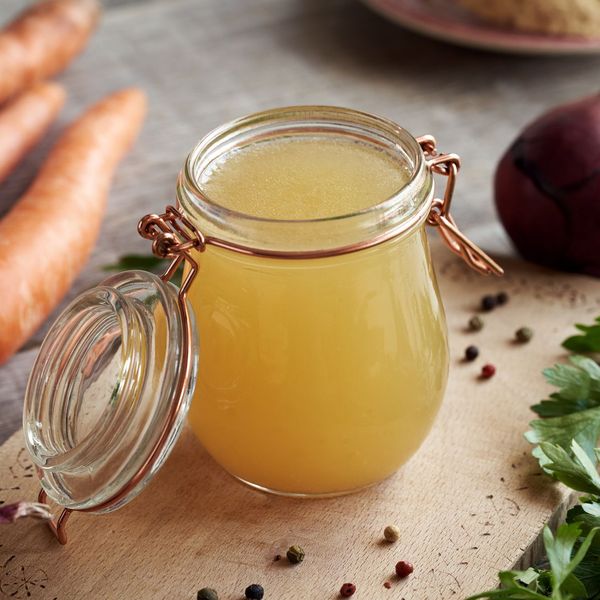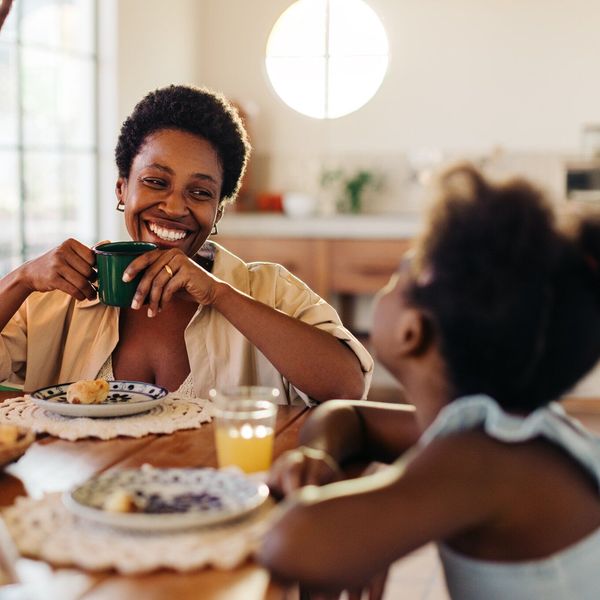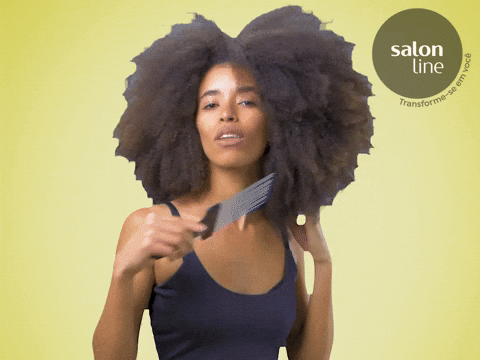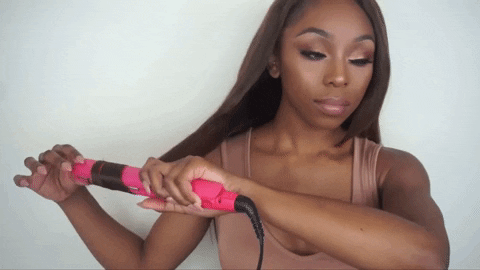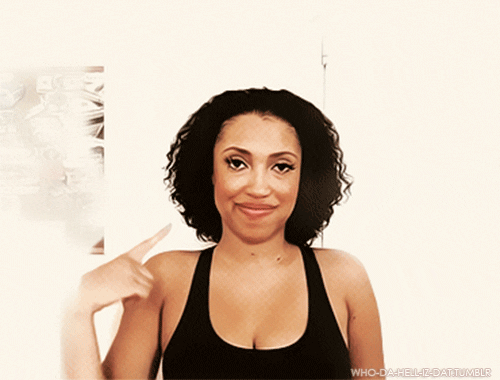
Here's the thing about cannabis…marijuana…Mary Jane…Brown Sugar…weed. If you're not someone who smokes (or eats) it, I can assure you that you definitely know someone who does (even if they haven't hipped you to the fact). And if you're a Black person reading this, even if you don't "get down with the get down", I hope you are still in full support of decriminalizing it because the fact that so many of our people are locked up for dime bags while white people are thriving with their dispensaries is one of the most triggering things about the current legislation (or lack thereof) in this country. Ugh.
What's my personal take on cannabis? It's a plant. One that has psychoactive properties via three different types — Cannabis sativa, Cannabis indica and Cannabis ruderalis. I know that when the flowers on these dry out, we end up with what white folks call "pot". That said, roughly 65 percent of the people I personally know are either casual or religious weed consumers. I have definitely tried it, more than once (my first time was with my late fiancé), and I personally am amazed that more people are triggered by it than alcohol (more on that in a bit). Anyway, because cannabis is still considered to be illegal in many states — which I personally find to be ridiculous on so many levels — I have to responsibly advise that any fan who lives in a state where cannabis isn't legal, they should proceed with caution.
However, because I am aware of several benefits that come from the use of cannabis and because I also have a late close friend (someone who was adamantly opposed to weed before trying it) who found much relief during her cancer journey while using it, I know that no matter how much racist propaganda is pushed, this plant can be helpful on a myriad of levels. To be fair, I also know that it comes with a few challenges that need to be considered too.
So, in the effort to make sure that there is a fair and realistic approach to something that continues to be a controversial topic, let's explore 10 of the many pros and potential cons that come from lighting one up, having a brownie, enjoying a gummy — or whatever your cannabis consumption preference may be.
We'll start with the upside of it first.
BENEFIT #1: It Can Reduce Physical Pain
OK, so a bit of a breakdown on cannabis is both it and hemp come from the Cannabis sativa plant (although cannabis can come from the Cannabis indica plant too). And just what's the difference between the two? Basically, hemp contains 0.3 percent or less THC while cannabis contains more than that. As far as what THC (which stands for delta-9-tetrahydrocannabinol) is, it's what creates the feeling of being high. Then there's the CBD (which stands for cannabidiol) that's also in hemp and cannabis; however, it doesn't produce a euphoric sensation. Instead, it's what reduces pain and inflammation.
CBD is why a lot of people are huge consumers of products like CBD oil because it has a pretty good reputation for also decreasing symptoms that are associated with pain, nausea, migraine and seizures.
The reason why cannabis can be helpful when it comes to treating pain is because it has a way of mimicking the cannabinoid chemicals that are naturally in your body. When THC and CBD are consumed, they stimulate your brain's receptors and reduce your pain levels. As far as if you should go with THC or CBD, it really all depends on if you want to "feel high" or not because, again, CBD can also be beneficial when it comes to reducing pain and body inflammation, although it won't give you the "extra effects" like giddiness, a heightened intensity to sights and sounds or even great and almost immediate feelings of relaxation (although I'm someone who applies CBD oil on my feet before going to bed and BABY…it's a wonder).
BENEFIT #2: It Can Decrease Stress and Anxiety
Weed affects different people in different ways. There is no doubt about that. So yes, it can actually trigger anxiety in some. At the same time, there are many people who say that smoking weed creates a feeling of calm, helps them to chill out and it is an effective way to get them to sleep quicker and more soundly. Probably the main thing to keep in mind here is since THC does provide a high effect that could potentially backfire and lead to high stress and paranoia, if you're looking to cannabis to solely help with stress and anxiety levels, something in CBD form is probably going to be less risky and more beneficial for you.
BENEFIT #3: It Can Be Good for Your Blood
Now here's a benefit that a bet a lot of you didn't know. Were you aware that cannabis has the ability to regulate the insulin in your system? What this means is it can actually help you out when it comes to stabilizing your blood sugar levels, lowering your blood pressure and even increasing blood circulation throughout your system. There are even studies to support the fact that THC and CBD can help to increase insulin in individuals who have type 2 diabetes while improving their metabolism in the process; this can be good for one's blood and liver in the long run. How dope is that?
BENEFIT #4: It Can Improve Your Sex Life
This particular point, I won't expound too much on, mostly because I've already written an article on it before (check out "7 Proven Ways Weed Makes Sex So Much Better"). What I will say is because THC gives off a feeling of euphoria, it can do wonders for you when it comes to elevating your mood and relaxing your body, so that you can orgasm quicker (or more intensely). As a bonus, it's also helpful for men when it comes to de-stressing them and also making erectile dysfunction less of an issue (if it is one).
BENEFIT #5: It’s Relatively Safer than Alcohol
The people who are huge wine drinkers who frown on weed smokers are interesting to me. They're kind of like the vegans who frown on meat eaters even though they do things like eat fast food. OK, but I digress on that last part. When it comes to my first comparison, something that I oftentimes say is, "When's the last time you heard that someone beat the crap outta someone while they were high?" or "Who do you know who caused a car accident while they were high?" Oh, but I hear this about both of these, as it relates to alcohol, quite a bit. I've got some people in my family who victimized others via their abuse of alcohol, in fact.
And aside from the recklessness that being under the influence of alcohol can cause, long-term health risks include high blood pressure, a weakened immune system, cancer, depression and liver disease — and that's just to name a few. That's not to say that cannabis comes with absolutely no health-related issues (I'm about to get into that). Still, when it comes to comparing it to alcohol, read "Marijuana Is Safer Than Alcohol: It's Time To Treat It That Way" when you get a chance. It might surprise you, just how problematic alcohol has a tendency to be; especially, in comparison to cannabis.
Now for the flip side of the coin.
CHALLENGE #1: It Can Alter Your Moods
I'm thinking it goes without saying that it's one thing to use cannabis; it's another thing entirely to be dependent on it (and yes, many people are). And so yes, if you're relying on it to process moods or get you through the day, that's unhealthy on a few levels. For one thing, constant use of weed can increase your chances of memory loss, lack of empathy, loss of concentration or — and this is a big one — it can increase the things that are associated with any mental health issues that you may already have.
I've even read that cannabis can put teens at a greater risk of being diagnosed with schizophrenia. So, if you are currently an avid cannabis consumer yet you don't feel super stable as far as your moods are concerned, the amount of it that you are consuming could very well be the culprit.
CHALLENGE #2: It Can Damage Your Lungs (or Not)
This point is interesting because, while at the end of the day, smoke in your lungs is well, smoke in your lungs, when it comes to cannabis specifically, there are pros and cons to intaking it this way. On one hand, there are some studies which state that smoking weed can actually increase your lung's capacity while sources like the American Lung Association state that long-term cannabis use can lead to stripped lining of your lungs, bronchitis, chronic coughing and an overproduction of mucous.
Then there's the risk that you run of not smoking just cannabis but whatever other substances that may be in it which could damage your lungs too. Still, with places like Harvard and The Journal of the American Medical Association going on record saying that moderate consumption of weed really isn't "that big of a deal" when it comes to your lung health, I think the biggest takeaway here is too much of anything isn't good, no matter what it is, which is why balance is key. Oh, and that edibles keep the lung issues from being so much of an issue.
CHALLENGE #3: It Makes Your Heart Work Harder (Much Harder)
Let's talk about cannabis as it relates to heart health for just a moment. There are many studies to support the fact that people with heart disease who are under a lot of stress, they end up experiencing heart pain way quicker than those who don't have these issues. That's because cannabis is able to raise your heart rate and dilate your blood vessels. Something else that's pretty daunting here is the fact that you increase your risk of having a heart attack by seven whopping times within an hour of smoking cannabis in comparison to if there was none of it in your system at all. That might be part of the reason why more and more studies are coming out citing that teens who frequently smoke weed are twice as likely to experience a heart attack than those who don't.
CHALLENGE #4: It Can Be Potentially Bad for Your Brain
We've definitely gotta be careful about using things that can mess with our brain, right? As far as cannabis goes, the main thing to keep in mind is THC tends to connect to the brain's cannabinoid receptors which are connected to the nerves that are responsible for things like your memory, appetite, moods and even pain regulation. This is another reason why adapting the motto "moderation is key" when it comes to cannabis use can be a really good idea. Also, there are studies that connect long-term cannabis use to a drop in IQ points in teens.
Brain-wise, you should definitely steer clear of synthetic cannabis (a man-made hallucinogenic substance). It's linked to things like poor motor skills, low inhibitions, seizures, hallucinations, violent behaviors, paranoia and even brain damage. Synthetic cannabis can also be far more addicting than a natural form of cannabis. For the record, some reports say that 1 in 10 adults are capable of becoming addicted to natural weed. Just something to keep in mind.
CHALLENGE #5: You Can Become Psychologically Reliant
So, let's end with something else that is a hot topic when it comes to cannabis — how easy is it to become addicted to it? What a lot of health experts believe is you are far more susceptible if 1) you've got a predisposition to it due to your parents and/or grandparents being avid users and 2) more than half of the people who do become addicted typically have a mental health issue like depression, anxiety or PTSD because while it first seems like a soothing agent, it can end up being something that users feel like they can't function without. No substance should ever make you feel that way, so if that is your current perspective on cannabis, first make an appointment to see your doctor and then consider meeting up with a therapist. Chances are, if the THC is what you're struggling with, at the very least, a CBD oil will be recommended as an alternative.
Cannabis is far too vast of a topic to be able to address everything. I hope this at least gave you more to think about whether you use it or you're someone who has been strongly against it without knowing more about it. As with most things in life, it's got a lot of good, comes with some risks and should be approached with balance. For more info on things like its legislation, various strains and where to purchase cannabis products, visit sites like Leafly and Marijuana Moment and also read articles like "9 black-owned cannabis companies you should know", "7 Black-Owned Cannabis Brands to Support This 4/20" and "Conscious Consumption: 100+ Black-Owned Cannabis Businesses to Support Right Now". Have fun. Be safe.
For more inspiration, self-care, and wellness tips, check out xoNecole's Wellness section here.
Featured image by Getty Images
- This Cannabis Chef Built The First Weed-Infused Cafe In The ... ›
- CEO Cannabis Connoisseur Wanda James Reveals How She ... ›
- How Q. Nicole Is Breaking The 'Grass' Ceiling In The World Of ... ›
- Why Cannabis Lube Is The Best Thing To Get Yourself For V-Day ›
- Amazing Health Benefits Of CBD Oil - xoNecole: Women's Interest, Love, Wellness, Beauty ›
- Brown Girl Jane CBD Products Review - xoNecole: Women's Interest, Love, Wellness, Beauty ›
This Is How To Keep 'Holiday Season Stress' From Infecting Your Relationship
Hmph. Maybe it’s just me, but it seems like there is something really weird happening in the fall season air (because winter doesn’t officially begin until December 21) that cuddle season is in full swing while break-up season is as well. In fact, did you know that break-ups are so popular during the holiday season that December 11 is deemed Break-Up Day?
The reasons why relationships shift around this time vary; however, I did both roll my eyes and chuckle when I read that a very popular one is because it’s an easy way to get out of getting one’s significant other a Christmas present. SMDH.
Anyway, I personally think that the less shallow folks out here may contemplate calling things “quits” or they at least distance themselves a bit from their partner (and what I’m referring to is serious relationships) due to all of the stress and strain that oftentimes comes with the holidays whether it be financial, familial, due to their tight schedules or something else.
Listen, I would hate for you and your man to miss the fun and happiness of experiencing this time of year, all because you are so overwhelmed or irritated that you can’t really enjoy it. That’s why I have a few practical tips for how to avoid allowing the typical holiday season stress from INFECTING your relationship.
Manage Your Expectations
 Giphy
GiphyUnmanaged expectations. If there is a main reason why the holiday season tends to be so stress-filled for so many people, I’d bet good money that this is the cause. And when you’re in a long-term relationship, expectations can manifest themselves in all sorts of cryptic and/or unexpected ways. You might have relatives who assume that you are going to be with them for Thanksgiving or Christmas when you have other plans in mind. You might be thinking that you are going to spend one amount for presents while your man is thinking something totally different. When it comes to scheduling, your signals may be crossed.
And you know what? To all of these scenarios, this is where clear and consistent communication come in. Don’t assume anything. Don’t dictate anything either. From now until New Year’s, mutually decide to check in once a week, just to make sure that you are both on the same page as it relates to the holidays and what you both are thinking will come along with it. The less blindsided you both feel, the less stressed out you will be. Trust me on this.
Set (and Keep) a Budget
 Giphy
GiphyOkay, so I read that last year, 36 percent of Americans incurred some type of holiday-related debt. Hmph. Last year, there was still some sense of normalcy in this country, chile, so I can only imagine what finances are gonna look like over the next several weeks. That said, since I don’t know a lot of people who don’t find being broke stressful, make sure that you and your bae set a budget and then stick to it this year — no ifs, ands or buts.
Because really, y’all — it doesn’t make sense to deplete savings and/or max out credit cards for a few days of giggles only to be damn near losing your mind because you don’t know how to make ends meet come Dr. Martin Luther King, Jr. Day.
And by the way, this tip doesn’t just speak to things like food and gifts; I also mean travel. If it doesn’t make a ton of sense (or cents) to be all over the place this year — DON’T BE.
Keep Matthew 5:37 at the Forefront
 Giphy
GiphyIf off the top of your head, you don’t know what Matthew 5:37 says, no worries, here ya go: “But let your ‘Yes’ be ‘Yes,’ and your ‘No,’ ‘No.’ For whatever is more than these is from the evil one.” That verse right there? Oh, it’s a boundaries lifesaver! I say that because do you see “maybe” or “I’ll think about it” in there? Nope. LOL. It says that you should tell people “yes” or “no” and leave it at that — and that complements Anne Lamott’s quote, “’No’ is a complete sentence” impeccably well. Yeah, you’ve got to remember that anything beyond a yes or no to a request is privileged information; you don’t owe anyone details or an explanation.
Besides, if you are really honest with yourself, when someone asks you something and you give a “Umm, let me think about it” kind of reply, more times than not, you already know what your answer is going to be — so why not let you both off of the hook? Give your response. Commit to that. And let everyone (including yourself) get on with their lives and schedules.
I promise you that when it comes to those holiday parties, you are pissing more folks off by not RSVP’ing or doing so and not showing up than just saying, “Thank you but not this year” off the rip.
Remember That Your Personal Space Is Privilege Not a Right
 Giphy
GiphyA friend of mine recently bought a new house and invited me over to come see it. He’s a single man with no children, so as I was taking in all of the space that he had, especially as I walked through his finished basement, I joked about relatives coming to live with him. “Hell no” and “absolutely not” were pretty much his immediate responses as he went on to say that some folks even had the nerve to be offended when he told them that he had no intentions on taking DNA in.
Ain’t it wild how people think that your stuff is their right? And yes, that brings me to my next point. Your home is your sanctuary space. If you want to host folks this year — cool. If not, ALSO COOL. Please don’t let folks (family included) guilt you into how they want you to act or even into what they would do if the shoe was on the other foot. You are not them — and as one of my favorite quotes states, “If two people were exactly alike, one of them would be unnecessary.” (A man by the name Larry Dixon said that.)
Hell, my friends? They know that I am good for sending them random things that they need or even want all throughout the year. Coming over to hang out at my pace, though. Uh-uh. Chalk it up to being a card-carrying member of the ambivert club yet I like keeping my living space personal — and I sleep like a baby, each and every night, for feeling that way.
Always remember that your space, your time, your resources, your energy and shoot, yourself period (including your relationship), are all things that are your own. You get to choose how, when and why you want to share them. The holiday season is certainly no exception.
Cultivate Some “You Two Only” Traditions
 Giphy
GiphyIt’s not uncommon for some couples to hit me up after the holiday season to “detox.” Sometimes it’s due to the financial drama (and sometimes trauma) that they experienced. Sometimes it’s because they allowed their relatives (especially in-laws) to get more into their personal business than they should’ve. More than anything, though, it tends to be because they didn’t get enough quality time together and so ended up feeling “disconnected.”
Please don’t let that happen. Listen, I’m not even a holidays kind of woman and yet, I will absolutely sit myself down with some hot chocolate and chocolate chip cookies to enjoy a Hallmark holiday film or two. Aside from the fact that most of them are lighthearted and sweet, I also like that they usually focus on couples loving on each other amidst all of the holiday beauty and ambiance — which is something that all couples should set aside some time to do.
Maybe it’s a vacation. Maybe it’s a staycation. Or maybe it’s my personal favorite, A SEXCATION. Whether it’s for a few days, the weekend or even overnight — don’t you let the holidays go by without setting aside time for you and your man to celebrate one another. Don’t you dare (check out “Are You Ready To Have Some Very Merry 'Christmas Sex'?”).
GET. SOME. REST.
 Giphy
GiphyI once read that 8 out of 10 people get stressed out over the holidays and 3 out of 10 lose sleep during to it — and when you’re stress-filled and sleep-deprived, that can absolutely lead to hypersensitivity, making mountains out of molehills and even not being in the mood for sex.
Your relationship can’t afford to go through any of this, so definitely make sure to prioritize rest. I don’t care how unrealistic it might seem during this time, sleep should never be seen as a luxury; it will always and forever be a great necessity.
That said, try to get no less than six hours of shut-eye in (check out “6 Fascinating Ways Sex And Sleep Definitely Go Hand In Hand”) and even ask your bae to take a nap with you sometimes (check out “Wanna Have Some Next-Level Sex? Take A Nap, Sis.”). Not only will sleep help to restore your mind, body and spirit but, when it’s with your partner, it’s an act of intimacy that can make you both feel super connected, even in the midst of what might feel like chaos.
___
Holiday season stress is real. Still, never give it the permission or power to throw your relationship off. Put you and your man first and let the holidays be what they are gonna be, chile.
Let’s make things inbox official! Sign up for the xoNecole newsletter for love, wellness, career, and exclusive content delivered straight to your inbox.
Featured image by Shutterstock
It’s probably been over the past 2-3 years that I’ve become hyper-focused when it comes to applying certain chemical exfoliants known as acids to my skin. Personally, I’ve come to really appreciate ones like mandelic acid and hyaluronic acid because they have a way of softening my skin, brightening it up and really evening out my complexion overall.
In fact, on my skin, they have been so effective that they have caused me to wonder what would happen if I applied some of them to my hair too — and boy, was it an experiment that paid off big time!
If, while on your continual journey to get the best out of your own tresses, you’d like to learn how to get them healthier than it’s ever been, I’ve got seven acids that are typically known for skin use that can be just as beneficial to your hair as well.
1. Salicylic Acid
When it comes to your skin, salicylic acid is beta-hydroxy acid that is great for your skin if you’re looking for something that will exfoliate it, clear out your pores and dissolve dead skin cells. In fact, this is why it’s an acid that is quite popular when it comes to treating acne.
Your hair will enjoy salicylic acid because, if you’re looking to remove product build-up, you want to soothe an itchy or irritated scalp or you’ve got some dandruff flakes that are totally driving you up the wall, salicylic acid has the ability to treat all of this. Either purchasing a shampoo that contains this ingredient or adding it to your favorite scalp scrub is probably the most effective way to get the most out of it.
Just make sure that if your scalp is sensitive or dry that you approach with caution. In these instances, it could end up irritating your scalp more than helping it out, so use a very little bit in the beginning to make sure that it vibes with you.
2. Lactic Acid
Lactic acid is an alpha hydroxy acid that can help to even out your skin tone as well as slow down the signs of aging. The properties in it help to do this by reducing hyperpigmentation and boosting collagen production in your skin as well as keeping it hydrated.
Why is it great for your locks? For one thing, lactic acid is considered to be a humectant. This means that it pulls water from the air so that your hair is able to remain moisturized.
Another thing that makes it a winner is the fact that lactic acid breaks down dead skin cells on your scalp (so that your hair follicles are able to flourish), it can help to soften and detangle your hair (making it a helpful addition on your wash days) and it also helps to protect your tresses from heat styling tools and UV damage. Applying a hair rinse that’s made up of part lactic acid and part water can work wonderfully (so long as you apply it once a month, tops; more than that might be too “intense” for your hair strands).
3. Glycolic Acid
Glycolic acid is a water-soluble alpha hydroxy acid that is actually made from sugar. Your skin will adore it because it smooths the appearance of fine lines and wrinkles, improves the texture of your skin, gently exfoliates, clears your pores and brightens up your complexion overall.
The reasons why you should consider this acid for your hair is because it helps to keep your scalp youthful (and yes, there is such a thing; check out “Your Scalp Ages Six Times Faster Than Your Face. Why It Matters.”), removes excess sebum (that could be clogging up your hair follicles) and it helps to keep your hair moisturized. Your best bet here is to make it a part of your pre-shampooing ritual.
4. Succinic Acid
Succinic acid is an acid that is made from sugar cane and contains antimicrobial and anti-inflammatory properties. Although it doesn’t exactly exfoliate (like many of these other acids do), it can still be beneficial to your skin when it comes to reducing the kind of irritation that is associated with eczema, decreasing the bacteria that leads to breakouts and keeping your skin pretty hydrated.
As far as your hair goes, this is an acid that is worth trying out because it helps to balance the sebum that is on your scalp, remove dead skin and product build-up that can irritate your scalp and clog your hair follicles and, succinic acid is also beneficial when it comes to reducing dandruff and helping to prevent hair loss. Most people tend to apply this as a serum.
5. Hyaluronic Acid
I’ve officially sung the praises of hyaluronic acid on this platform before. One example is via the article, “Why Your Skin, Hair, And Nails Need Hyaluronic Acid Like...Yesterday.” On the skin tip, hyaluronic acid is great because it deeply hydrates your skin, contains anti-aging properties and can even bring relief to vaginal (including vulvar) dryness.
Your hair will adore this particular acid because it aids moisture to it (including your hair follicles), will help to improve your hair’s texture and it also soothes scalp dryness, nurtures the cuticles of your tresses and decreases frizz. Using a serum rich in this acid as a pre-poo or as a leave-in conditioner is recommended.
6. Azelaic Acid
If you’ve never heard of azelaic acid before, this is your lucky day. It’s a dicarboxylic acid that, when it comes to skincare (and hair care) products, is usually synthetic. Anyway, if you are looking for a way to reduce inflammation, even skin tone after a breakout or if you want to use an exfoliant that will improve the texture of your skin overtime, you might want to give this acid a shot.
This one makes the list as far as your hair is concerned because, if achieving more inches is your current focus, azelaic acid might come in handy. That’s because it is able to strengthen your hair, thicken your strands and also stimulate hair growth from within your hair follicles.
7. Glutamic Acid
Glutamic acid is actually a type of amino acid. Skin-wise, it’s great for deeply hydrating your skin as well as protecting it from pollutants and damaging UV rays. Also, if you’re looking for an acid that treats skin dryness or “tightness,” this could be the answer to your prayers.
Since glutamic acid is also considered to be a humectant, it’s another acid that can moisturize your hair. As a result, it can decrease breakage while helping your hair to feel smooth and look shiny.
BONUS: Amino Acids
Speaking of amino acids and hair, please try to keep some amino acids in your diet at all times. The reason why is because, since your hair is made up of mostly protein (keratin, to be exact), amino acids are pretty darn effective when it comes to helping you to maintain the overall health and well-being of your hair.
Ones to prioritize include proline (it boosts collagen so that your hair strands can maintain flexibility); arginine (it increases blood flow to your hair follicles so that they can receive the nutrients that they need); cysteine (it helps to keep your hair follicles healthy); alanine (it helps your system to produce more collagen), and isoleucine (it strengthens the tissues that help to make up your hair strands). All of these are available in supplement form or you can use Google to see which foods contain them.
___
Although it might initially seem odd to apply acid to your hair, as you can see, certain ones will work miracles for it. So, test them out to see which one tickles your fancy.
Hell, since they work for your skin as well — it’s a two-for-one deal that is worth every penny!
Let’s make things inbox official! Sign up for the xoNecole newsletter for love, wellness, career, and exclusive content delivered straight to your inbox.
Featured image by Shutterstock



